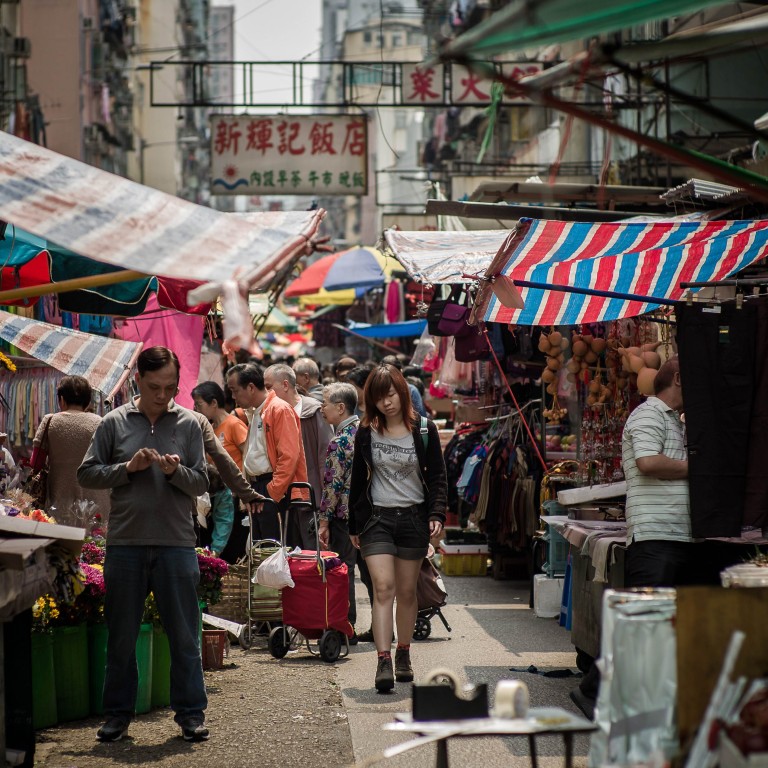
New | Plan for fixed HK$1,500 fine for shops that block pavements unfair and impractical, say lawmakers
Problem ‘black spots’ targeted in bid to clear streets of goods
A plan to introduce a fixed HK$1,500 penalty for shops that block pavements and roadways with goods may be unfair and impractical, say some lawmakers.
Secretary for Home Affairs Tsang Tak-sing said in a Legislative Council home affairs panel meeting on Monday that the existing punishment mechanism takes too long to process and the fine is often too low.
The government suggests the amount of the fixed penalty could be the same as littering, which is HK$1,500.
People Power’s lawmaker Raymond Chan Chi-yuen, however, doubted the practicality of the plan. “Enforcing it will be difficult. How do you explain to a vegetable vendor why he is not allowed to put his vegetables out of his premise but other vendors are allowed to do so?” he said.
And cultural and sports lawmaker Ma Fung-kwok said some vendors may find it unfair why discretion is allowed for some vendors but not for some others.
Under the current mechanism, anyone fined has to go through the court, which usually takes one to two months for a summons to be issued and the court hearing can take another one to two months, Tsang’s bureau says. Last year, convictions amounted to an average HK$595 fine, although the maximum penalty is HK$5,000.
Tsang said in the Legco meeting that the government has identified 45 “black spots”, although there are another eight locations where discretion could be allowed.
“Shopfront extension has become an old, big and difficult problem for us,” Raymond Young Lap-moon, permanent secretary for home affairs, said on March 14 as he launched a four-month consultation. “There are too many people and there is too little land in Hong Kong. The rents are high and business competition is acute. We don’t hope to solve the problem permanently, but we hope to enforce our measures more effectively.”
Young cited boxes of baby formula, diapers and tissue paper piled outside pharmacies, illegal alfresco dining areas at restaurants, wet market stalls that spill outside and construction companies that extend their business onto the pavement as the main targets for the proposal.
But he raised the possibility that, in areas where streetside shopping boosted “local character”, rules could be relaxed.
According to the proposal, shop owners, licensees or managers would be hit with a fixed penalty, which could be issued by officers from several government departments, if they were caught red-handed putting goods outside their store.
Simon Wong Ka-wo, president of the Federation of Restaurants and Related Trades, said that the government could set the fine even higher to better deter offenders, and that if business owners offended repeatedly, the government should require them to close their shops.
“If penalties are set too low, some business owners would just take fines as part of the recurring costs,” Wong said.

